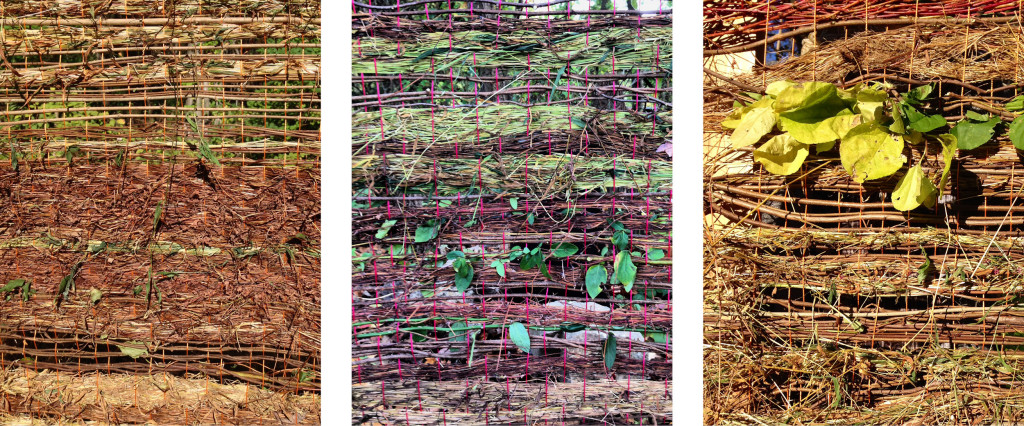 By LandLab Resident Artists Zya Levy and Kaitlin Pomerantz, WE THE WEEDS
By LandLab Resident Artists Zya Levy and Kaitlin Pomerantz, WE THE WEEDS
For our Landlab Residency project, the process of its creation is of great importance. As we work towards the installation of a large-scale sculpture created from woven plant material in Spring 2015, we invite Schuylkill Center visitors to participate right now in creating the tapestry panels which will comprise it. In this way, the exploration of global plant migration, and the ecological and cultural roles of non-native plants, becomes a hands-on, engaging experience, with a cumulative, archival result. The following photos show some moments in the process– from the building and stringing of the looms, to their on-site installation, to actual weaving. The looms will be up all fall– we hope these photos encourage you to come up and try your hand at weaving with invasive vines!
With the help of Philadelphia Woodworks we built two large, free standing, cedar tapestry looms.
For the warp, we are using colorful braided mason line. For the weft we are using invasive plants such as oriental bittersweet, mile-a-minute, Japanese honeysuckle, wisteria, Japanese stiltgrass and bush honeysuckle harvested from the Schuylkill Center.
A group volunteers help remove invasives and collect materials.
We process the material by cutting it into workable lengths and stripping off the leaves revealing the colors and textures of the plant material, the silvery-grey of the oriental bittersweet and the rusty brown of the mile-a-minute.
With the looms strung up and material collected we are ready to weave. Friends, volunteers and students pitch in!
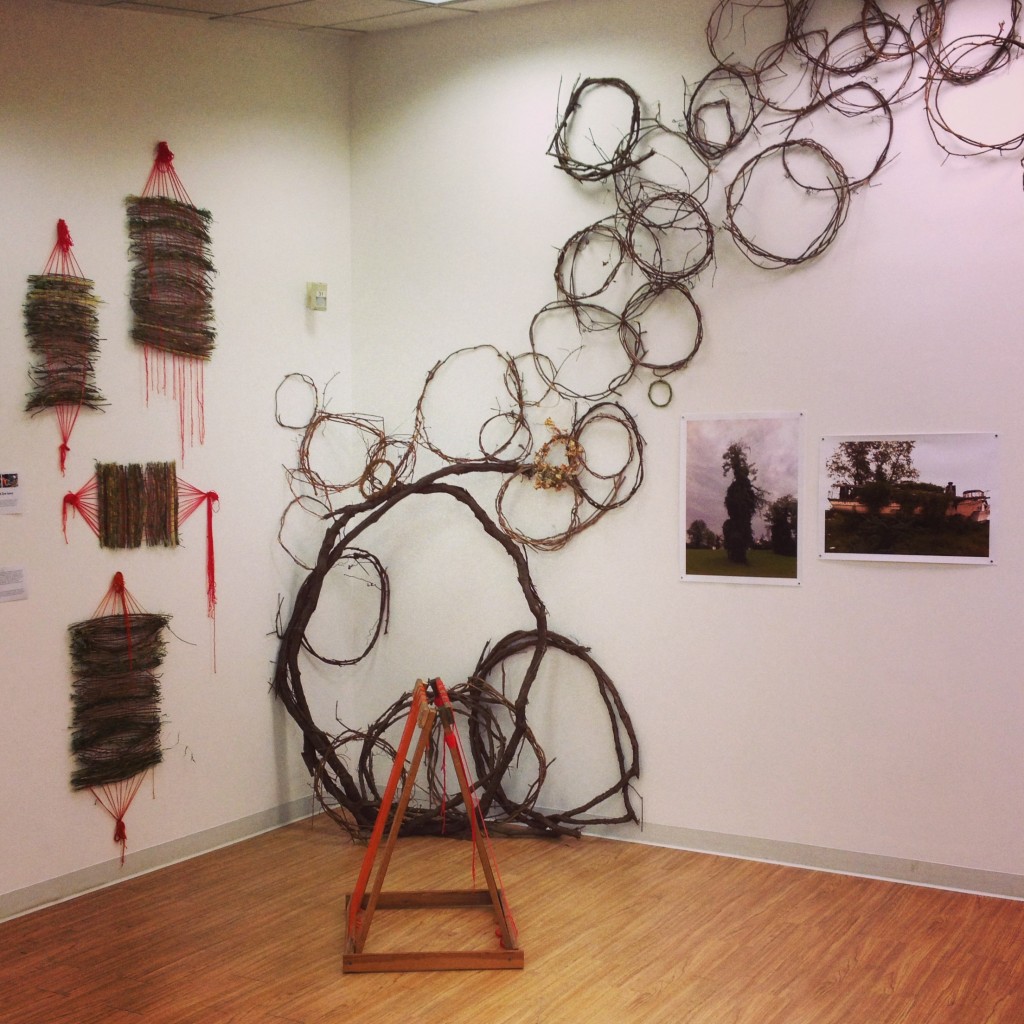 We contributed some process weavings, photos, and a vine installation to a beautiful show at the Schuylkill Center called Progress & Process, and also included an indoor loom for this show. The show is up through December 13.
We contributed some process weavings, photos, and a vine installation to a beautiful show at the Schuylkill Center called Progress & Process, and also included an indoor loom for this show. The show is up through December 13.
The outdoor looms will be installed at the Schuylkill Center through the end of November. Please come join us!
Do you think you can weave as fast as Zya?
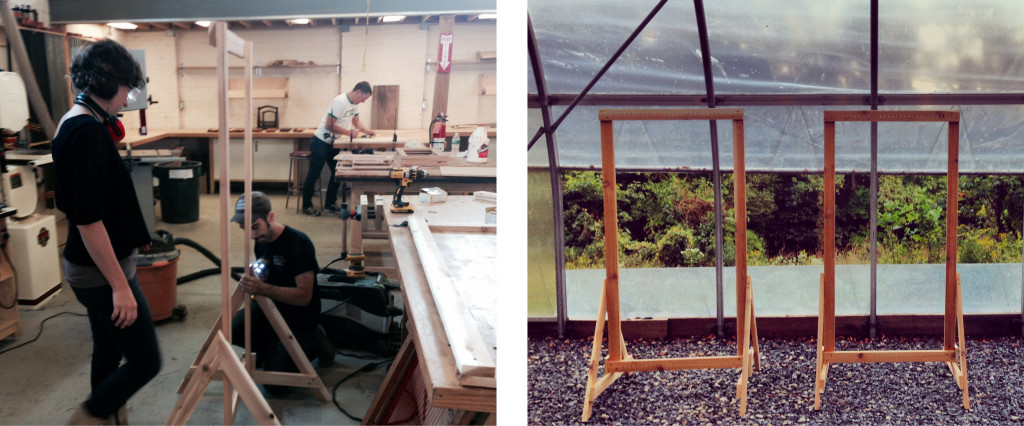
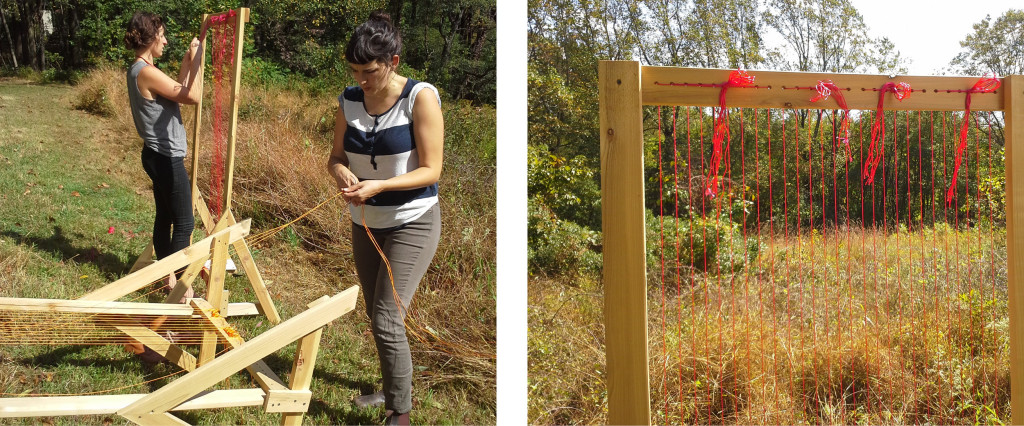
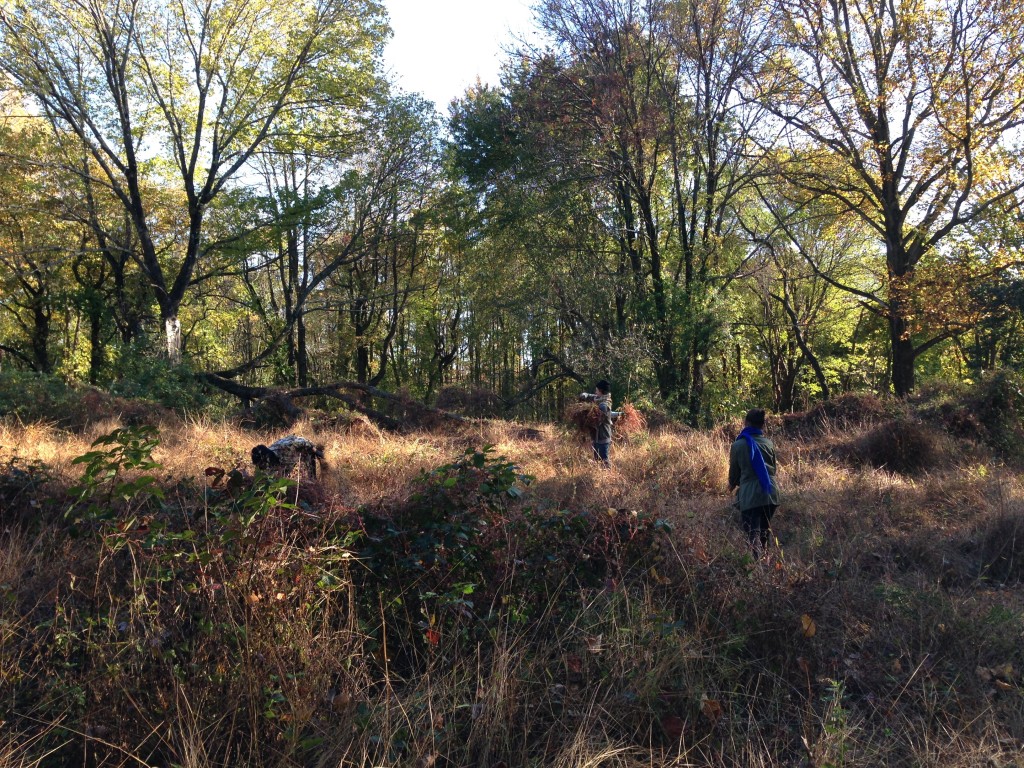
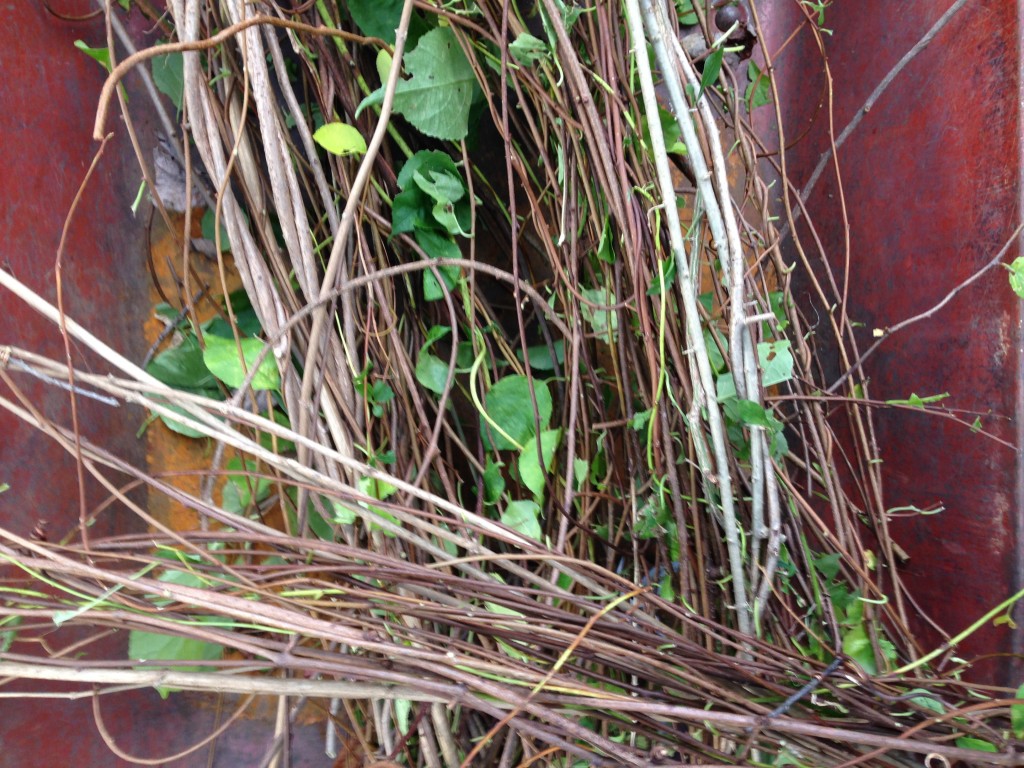
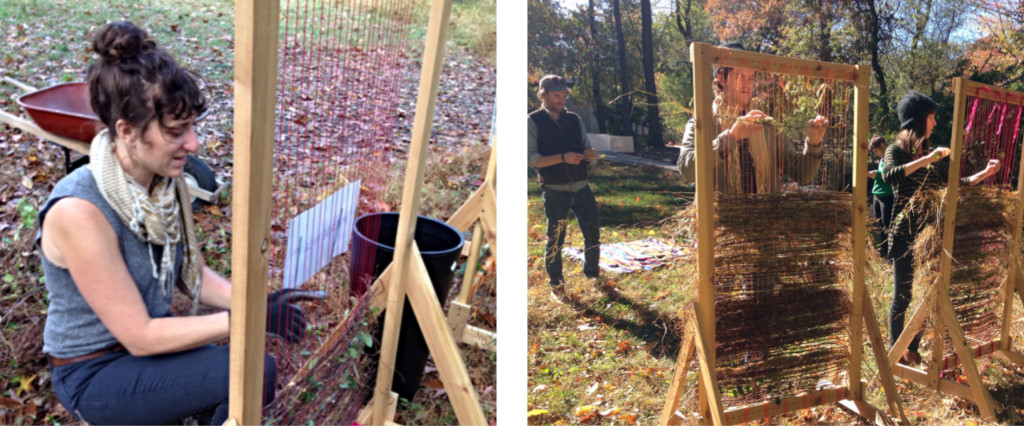
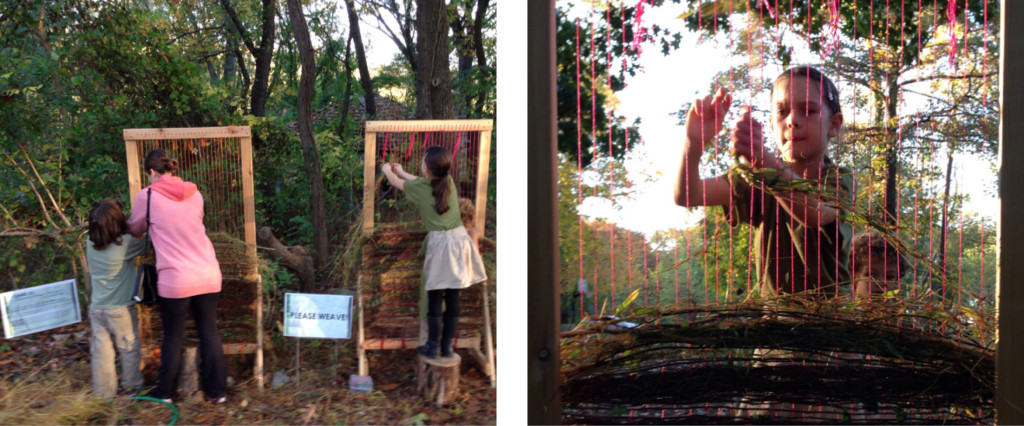
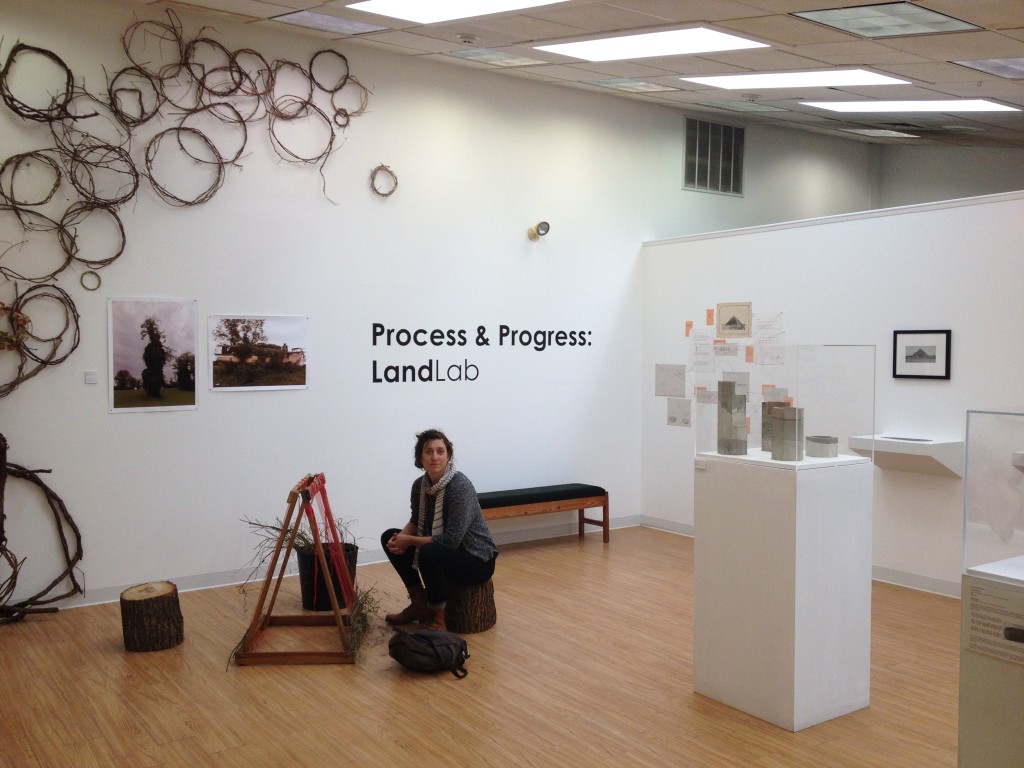
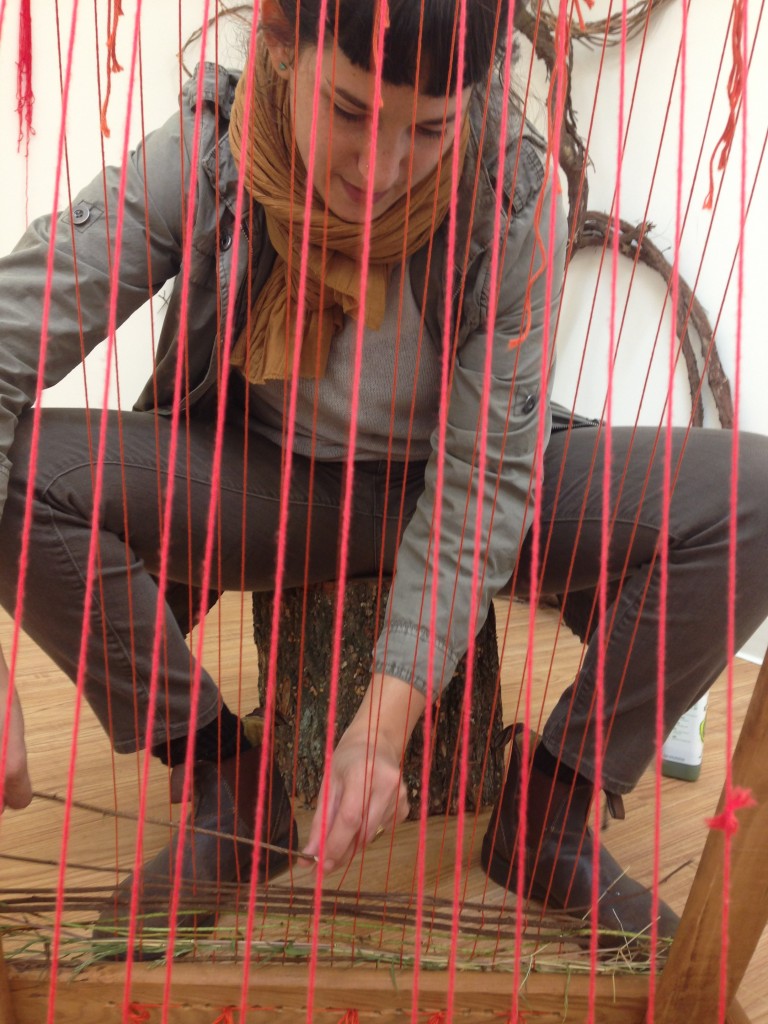
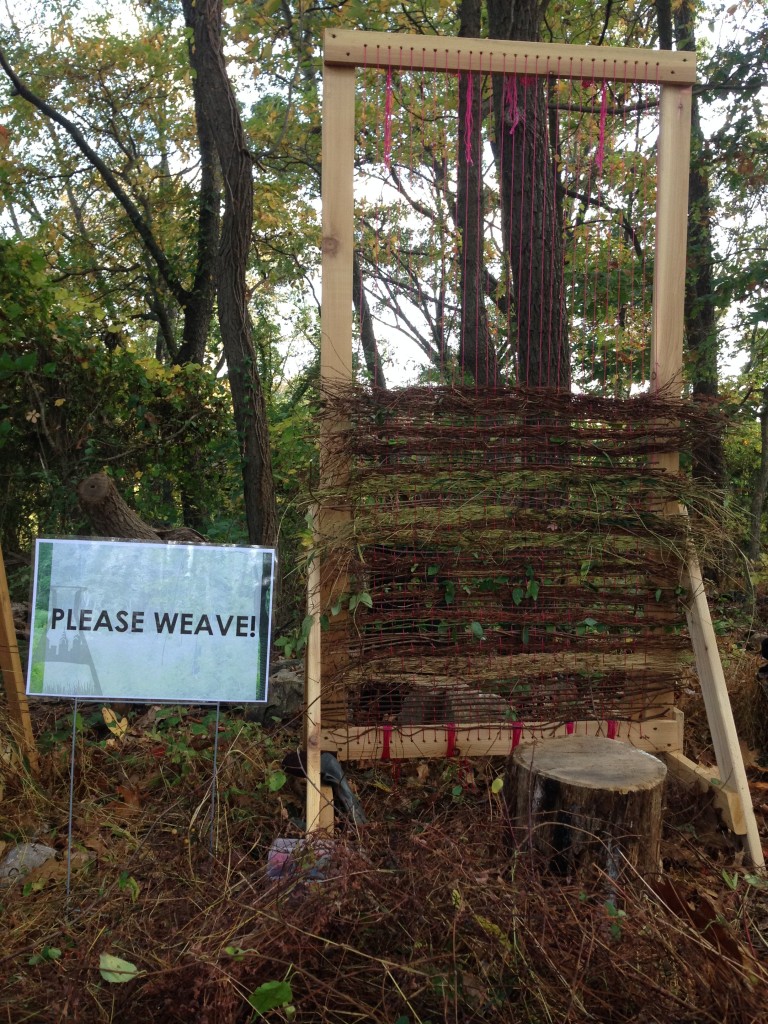
Pingback: Weaving Art into Nature | Schuylkill Center for Environmental Education